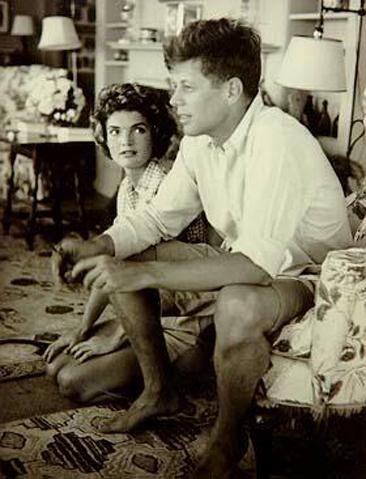1960: Looking Back a Half Century
By • May 3, 2012 0 2813

Depending on how old you are, 1960 may not seem so long ago, but the world was quite a different place then. As far a the global scene went, France was busy shedding colonies in Africa, the U.S. was making treaties with Japan, and Nikita Kruschev was acting up at the UN, although the “banging his shoe” incident was probably trumped up and passed along because it made such a good story. The U.S.S.R. already had already initiated the space race, and in 1960 launched a satellite with two dogs on board. This distressed the U.S. almost as much as the Russians shooting down Francis Gary Powers, as he flew over Soviet air space in his U-2 spy plane.
College kids were complacent, although an interesting group called the Student Non-violent Coordinating Committee (SNCC) was organized by student activists at Shaw University, a black Baptist college in Georgia. American Express issued its first plastic credit card. Marshall McLuhan explained in brilliant theories just how invasive and influential mass media was. There were no cell phones and no PCs; the computers used in offices were huge, unwieldy, and very slow. Oh yes, and everybody smoked cigarettes in restaurants, offices, hotel rooms, and everywhere else. The connection between smoking and lung cancer, while suspected, had not yet been established and publicized.
A new British rock group, who called themselves The Beatles, made their first appearance on stage in Hamburg, Germany. Elvis Presley, who went into the Army to serve his country, was made a Sergeant, and his stint in the military didn’t seem to cut into his singing career. The images on TV were only clear in the major metropolitan areas and grainy to snowy elsewhere, but everybody was hooked on it by 1960. They watched Jack Paar on the Tonight Show, and when Lucille Ball divorced Desi Arnez, it seemed unthinkable to all the fans who loved the zany couple and their antics on “I Love Lucy”. Alfred Hitchcock’s groundbreaking film “Psycho” opened in New York, of which the show scene, fifty years later, is still one of the scariest scenes in movie history.
Washington politics were in for a change. A dashing young senator from Massachusetts, John Fitzgerald Kennedy, decided to run for president, outmatched his opponent Richard Nixon in the first televised presidential debates, and won the presidency in November. He and his pregnant wife Jackie moved from their Georgetown house to the White House and brought the fresh air of youth, idealism, and hope to Washington.
Back then, investigative reporters pretty much considered the President’s private life “off limits”. It took years after John Kennedy was assassinated for his affairs with Marilyn Monroe and a mobster’s girlfriend, among others, to make the news. Even if the public had read it in the newspapers in the 1960’s, they wouldn’t have believed it, which is quite a statement on how the media and our perception of public figures have changed.
In December of 1960, the musical Camelot opened on Broadway and its brilliant cast went on to give 873 performances. If there’s one thing that even jaded Americans who were around in the 1960’s remember wistfully about the Kennedy presidency, it’s probably the reference to Camelot and its “one brief shining moment” in the pages of history.

